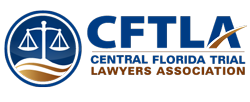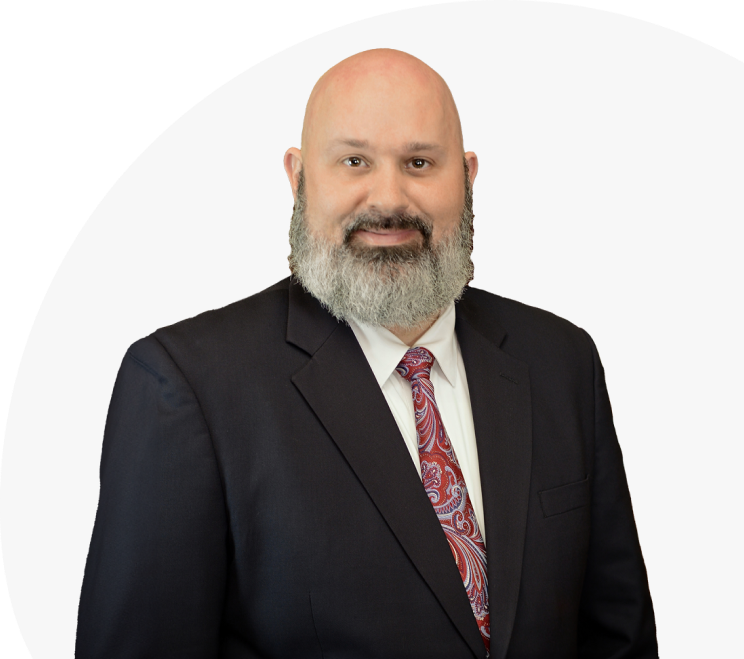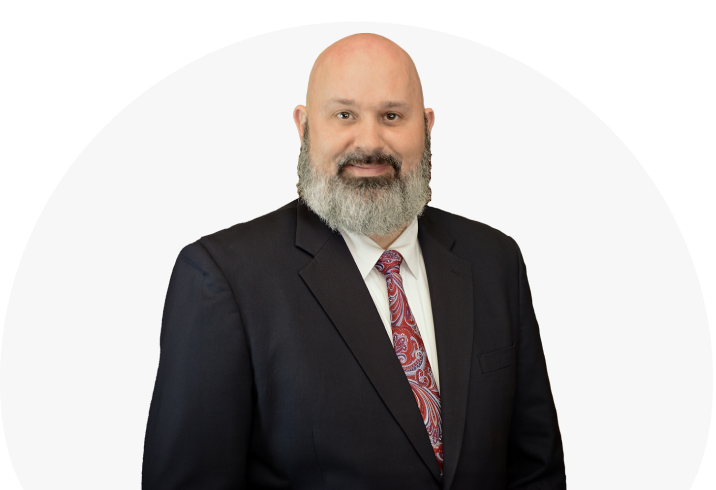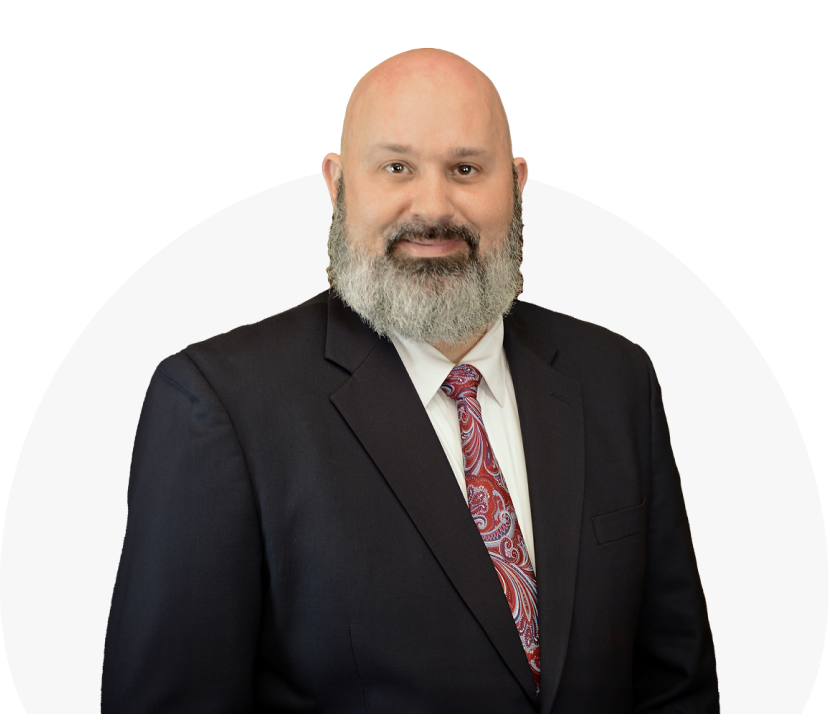Clermont Personal Injury Attorney
Many personal injuries should not happen but do because someone makes a bad decision or engages in irresponsible conduct that puts someone else in harm’s way. Residents and visitors to the Clermont region expect, and rightly so, that if they sustain an injury caused by another person’s or entity’s wrongdoing, then that wrongdoer should compensate them for the physical, emotional, and financial harm done. That is only fair and just.
Clermont personal injury lawyer Jerry Jenkins works tirelessly, day in and day out, representing Clermont-area victims of preventable personal injuries. Read on to learn more about how Jerry serves his clients. If you have questions about your legal rights after suffering an injury of your own, please contact him.
Personal Injury Law Practice Areas
Attorney Jerry Jenkins represents clients injured in a broad variety of accidents and incidents, the most common of which appear below. Of course, people get hurt in many more ways than these, so no matter how you sustained a serious injury in the Clermont area, give Jerry a call or contact him online for a free case evaluation and to learn about your potential rights to compensation.
Car Accidents
Every year, across Florida, car accidents represent one of the leading causes of preventable injury and tragic fatality. The Clermont area sees its share of that tragic tally. In 2018, 61 people died, and more than 4,000 people sustained injuries in our area alone. Many—too many—auto accidents result from someone’s bad decisions or dangerous actions and leave victims struggling with catastrophic injuries or grieving the loss of a beloved family member.
Jerry Jenkins has the resources and know-how to investigate car accidents that have harmed his clients, to identify the parties at fault, and to pursue just and reasonable compensation from insurance companies and other at-fault parties when necessary from auto accidents.
Truck Accidents
Motor vehicle accidents involving heavy trucks can exact an especially devastating toll on Central Floridians. A fully-loaded truck often weighs as much as an ordinary passenger vehicle. When it loses control and crashes, the damage it inflicts falls especially hard on the occupants of smaller cars and trucks.
Jerry Jenkins fights for those truck accident victims and the families of those victims tragically killed in a truck crash, even if that means pursuing each and every business entity that has an interest in, and liability for, a crashed commercial truck.
Motorcycle Accidents
Clermont-area roads offer a haven for motorcycle riders, but dangers always lurk. Some motorists refuse to give bikers the respect and right of way they deserve, wrongly treating them like second-class citizens on Clermont roads by cutting them off or driving dangerously around them. Other car and truck drivers simply fail to see motorcyclists in their mirrors or in oncoming traffic, and pull in front of them without realizing. Uneven road surfaces can also play havoc with motorcycle control.
These dangers lead to accidents, which in turn cause serious injuries to motorcyclists and their passengers. Jerry Jenkins stands up for the rights of motorcycle riders to recover compensation whenever someone causes an accident that hurts them.
Bicycle Accidents
Like motorcyclists, cyclists have every right to use the roads in and around Claremont. They, too, get treated poorly by some motorists and face risks from drivers not seeing them in mirrors, blind spots, or approaching head-on.
Bicycle accidents can inflict catastrophic injuries like brain trauma, spinal cord damage, and severe bone breaks. To recover, they often need significant financial support. Attorney Jerry Jenkins knows how to fight on cyclists’ behalf to ensure they obtain the compensation they deserve for their injuries.
Pedestrian Accidents
Crossing or walking along the road in Clermont should never constitute a life-threatening activity. And yet, year in and year-out, collisions between motor vehicles and pedestrians take lives and inflict horrific harm. Driver distraction plays an increasingly significant role in these preventable tragedies, particularly when drivers try to sneak a peek at a cell phone at an intersection or on a straightaway, thinking they can maintain control while they send a quick text.
Of course, they cannot. Their cars drift out of a lane or through a stop sign, imperiling pedestrians in their path. Jerry Jenkins works hard to hold drivers who hurt pedestrians accountable for their careless behavior.
Slips, Trips, And Falls
Falling harms untold numbers of Central Floridians every year, especially older adults living on their own or in the region’s many nursing facilities. Even a minor fall can cause major injuries, and even fatalities. Falls constitute a common cause of traumatic brain injury, broken bones, and spinal damage, made all the more tragic by the fact that falling can be prevented with simple safety measures.
Property owners who fail to take those measures, like securing handrails, mopping up spilled liquids, and fixing uneven steps, should pay for the harm dangerous conditions cause. Jerry Jenkins works diligently to make sure accountability happens.
Premises Liability
Not all injuries that happen on someone else’s property involve falling down, however. Tragic accidents and preventable incidents happen in all kinds of ways, from swimming pool and backyard trampoline injuries to animal attacks.
Jerry Jenkins understands the difficulties his clients face when confronting the trauma of a catastrophic injury or loss that occurred because of what seemed like a freak accident at someone else’s home, a theme park, or a hotel. Oftentimes, with a little investigation it turns out that the harm could have been prevented by taking precautions, and if so, the property owners should pay compensation to people needlessly injured by their carelessness.
How Jerry Jenkins Can Help
Lots of people have a vague idea that they might need a lawyer after sustaining a serious, accidental injury. However, fewer people have a good sense of what, exactly, a Clermont-area personal injury lawyer like Jerry Jenkins can do for them.
Because of the wide variety of scenarios in which people can get hurt, and equally wide variety of injuries people can suffer, every case has its own unique aspects. However, these are some of the tasks he typically handles for his injured clients in his pursuit of the compensation they deserve from anyone who did them harm.
He Investigates Accidents And Incidents To Identify The Parties At Fault
One of the first priorities in many personal injury cases is to dig into the facts of a client’s injuries to figure out what happened and who is to blame. Only rarely does that task prove easy or straightforward. Why?
Because an experienced Clermont personal injury lawyer knows to look beyond the moment of impact in an accident and to investigate the entire chain of events that leads to a client coming to harm, and also to look forward, into the future, to evaluate the scope and extent of the harm done.
Oftentimes, the goal is twofold: (1) to figure out which persons or entities have a legal liability to pay damages and the resources or ability to do so, and (2) to develop an understanding of the client’s damages, to establish a dollar value that the client should demand as compensation. By identifying all parties with potential liability and the ability to pay, and the full compensation a client should receive, a Clermont personal injury lawyer like Jerry Jenkins builds a foundation for aggressive advocacy in his client’s interest.
He Negotiations With Legally Liable Parties (And Their Insurers)
Armed with critical information about who has a legal liability to his client, and how much that liability is, Jerry Jenkins will then often engage with defense lawyers and insurance companies who represent those liable parties.
In virtually every case, the goal of interacting with the other side is to reach a settlement in which the client agrees to release the party from legal liability in exchange for a fair and reasonable payment. It takes skill, determination, and thorough preparation to succeed in negotiating a settlement for a client injured by someone else’s wrongdoing.
Insurance companies in particular resist paying a penny more than they need to pay to get out from under liability, and will use every trick in the book to minimize their financial exposure. (That is why, if an insurance company calls you offering a quick settlement before getting lawyers involved, say no. Unsolicited offers from insurance companies rarely, if ever, give you the full value of your claim.)
He Advocates For His Clients In Court
Not every case settles through negotiation alone. Sometimes, obtaining appropriate compensation for a client takes filing a legal action in Florida courts, and having the willingness and wherewithal to pursue the case all the way to trial, if need be. Some personal injury lawyers instinctively shy away from the courtroom. Not Jerry Jenkins.
If a defense lawyer says “we’ll see you in court,” Jerry Jenkins has the confidence and reputation to say “bring it on.” Presenting a case to a Florida judge and jury takes a combination of legal sophistication and plain-spoken communication skills. Jerry Jenkins has both, and he puts it to use in explaining why his client has the better legal argument, and why the facts compel a jury to award the maximum damages available under the law.
Tips for Confronting a Personal Injury
The aftermath of suffering a severe injury often feels immensely confusing and chaotic. Victims of someone else’s careless, reckless, or intentionally-harmful conduct frequently struggle to know what steps to take to keep themselves healthy and to protect their legal rights. Of course, every injury has its own unique circumstances, so it is difficult to give advice that applies in every case.
However, following the basic guidelines can help to protect you and your family in the event an expected injury turns your life upside-down.
- Get medical care. Seeing a qualified doctor and receiving the treatment you need should always—always—take top priority. Never play games with your own health, and never try to diagnose yourself. Many injuries take time to show a full breadth of symptoms, but a doctor can spot them right away with appropriate tests. In addition to safeguarding your health, seeing a doctor also generates important medical records that establish a link between an incident and an injury, which may prove useful in later legal proceedings.
- Say No to settlement offers of any kind. We mentioned turning down insurance company quick money offers without consulting Jerry Jenkins. In addition, be especially wary of any offer of free products or perks from someone after their actions injury you. In Central Florida, for instance, hotels and theme parks abound. If you get injured on one of those properties, never agree to a free stay or comped visit offered to make things right after you get hurt. Those freebies could come with strings attached that tie up your legal rights to cash-money compensation.
- Talk to a lawyer right away. The clock starts ticking on enforcing your rights at the very moment you get injured, in most cases. Do not wait to connect with an experienced Clermont-area personal injury lawyer who can help you plan a path forward that keeps you physically, emotionally, and financially protected.
Clermont Personal Injury FAQ
According to the National Safety Council, unintentional injury is the third leading cause of death in the United States. It is also one of the leading causes of emergency room visits and hospitalizations. In recent years, there has been an increase in the number of unintentional injuries in Florida and nationwide.
When an injury is the result of someone else’s negligence, you may have the right to financial compensation. A personal injury suit can help you recover damages related to your injuries.
What Is Personal Injury?
After an injury, there’s a good chance you will hear the term personal injury in some form. Personal injury laws—personal injury attorney—personal injury suit. But what does personal injury mean? After an injury, the law allows certain persons to file a claim to recover damages from an at-fault party. To qualify under personal injury laws the person must prove two things; negligence and damages.
In other words, you have to prove that the other party failed to exercise due care and consequently their actions lead to your injuries.
Personal injury laws cover a wide scope of accidents including:
- Car, truck, and motorcycle accidents
- pedestrian and bicyclist injuries
- Premises liability (dog bites, slip and fall, swimming pool accidents)
- Medical malpractice
- Wrongful death
- Assault
Do I Have A Personal Injury Case?
Not every action will qualify for a personal injury case. For example, you cannot sue someone for an action that was out of their control. Generally, this includes natural disasters, weather-related accidents, and acts of nature.
There will be some exceptions to this rule. But personal injury cases are not just about negligence; without actual damages, you don’t have a case. It’s important to remember, personal injury covers intentional injuries as well as unintentional injuries.
If you can prove fault and actual injuries, you likely have a case. A personal injury attorney can sit down with you and review the facts of the case to help you determine the right course moving forward.
How Do I Prove Damages?
Remember, the simple act of an accident does not automatically qualify you for a personal injury case. You have to prove that an actual loss resulted from the other person’s actions. While physical injuries are the most common form of damages, loss can include loss of earnings, loss of comfort, or mental distress. There are many ways to prove damages.
This includes:
- Medical bills
- Health reports
- Medical imaging
- Personal testimony
- Witness testimony
- Expert witness testimony
How Do I Prove Fault?
Unfortunately, at-fault parties typically don’t like to volunteer the blame in an accident. However, until you can prove fault, the insurance company won’t pay. Many times, parties will try to deny fault completely, or defer some of the fault to you. Evidence is everything in personal injury matters. The more evidence you can provide to support your claim, the better.
Evidence may include:
- Pictures: Whenever you are in an accident, it is a good idea to take pictures of the scene. If you are in a car accident, this will include pictures of the vehicles and any property damage. If you have a premises liability case, this may mean pictures of the area where the accident occurred.
- Witness testimony: Witnesses can provide a first-hand account of what happened. If there are witnesses that saw your accident, be sure to get their contact information.
- Video evidence: In some cases, video may document the actual incident. This may include video surveillance, cell phone footage, or dash cams.
- Accident reconstruction: Sometimes physical evidence is not enough to prove fault. In this case, your attorney may choose to hire an accident reconstruction expert to illustrate how the accident likely happened.
Who Will Pay For My Injuries?
A personal injury case can help you recover damages to pay for medical care and other treatment. In most cases, you will file a claim against the at-fault party’s insurance. However, in some cases, more than one party may hold financial responsibility. Additionally, you may have access to other means while your personal injury case is pending.
Parties who may pay for your injuries include:
- PIP: Florida requires all drivers to carry $10,000 personal injury protection. In the event of a motor vehicle, pedestrian, or bicycle accident, your PIP insurance will be your primary source of payment.
- Your health insurance: PIP insurance often isn’t enough to cover medical bills after an accident. If you exhaust your PIP or PIP does not apply to your accident, you still have the option to use your personal health insurance. This can help keep costs down while you settle your personal injury case. Your health insurance will likely try to recover these costs from the at-fault party at the end of your case.
- The at-fault party: The goal of a personal injury suit is to recover damages from the at-fault party. Who this is will depend on what type of claim you make. For example, car accidents typically only involve the other driver. However, if your accident is with a commercial vehicle, the driver’s employer may hold responsibility as well. For cases of premises liability, the property owner or lessee will hold responsibility. Medical malpractice cases can be complex. Depending on the circumstances of your case, you may have a claim against a doctor, support staff, or the care facility itself.
What Is My Case Worth?
Some people may be hesitant to ask about money after an accident, but the truth is, it’s a valid concern. When you are staring at ongoing medical bills and time off from work, it’s impossible not to worry about money. A personal injury case can help relieve some of the stress regarding finances. While there is no way to predict how much your case is worth, there are a few factors that most insurance companies will consider when they review your case.
Economic damages. In many cases, economic damages will make up the majority of your claim for damages. These are damages that have an exact and quantifiable value. This includes:
- Medical bills, including office visits, chiropractic care, mental health counseling, medication, medical devices, and physical therapy.
- Lost wages, including any time missed from work. If you are unable to return to work, your attorney will likely argue for future wages.
- Property construction, when your injuries require residential modifications to allow you to live comfortably in your own home.
Non-economic damages. You may hear non-economic damages referred to as general damages. These damages are more variable than economic damages and are largely dependent on how your injuries affect your overall quality of life. Damages include:
- Pain and suffering, including anxiety, depression, physical pain, and other mental anguish.
- Loss of enjoyment, when your injuries prevent you from participating in activities you enjoyed before your accident.
- Loss of companionship, when physical or mental injuries diminish the quality of personal relationships.
- Wrongful death, when an accident leads to the untimely death of a loved one. These cases generally include outstanding medical bills, lost wages, funeral and burial costs, and pain and suffering.
What Do All Of These Words Mean?
If you don’t have a legal background, the words you hear during a personal injury case can confuse you. While you don’t have to know all of the legal jargon, it’s helpful to know some legal terms. Common terms you might hear during your case include:
- Letter of protection: Personal injury cases can take several months to settle. In the interim, doctors will still charge you for your care. A personal injury attorney can draft a letter (a letter of protection) to request that your care providers defer payment until you reach a settlement in your case.
- Subrogation: This is a term that you don’t typically have to worry about, but it is one you will likely see at one point or another. In personal injury cases, the at-fault party will typically hold 100 percent liability. However, your personal health insurance or auto coverage may help cover costs while your case is pending. Subrogation simply means that these providers have the right to recover what they paid from the at-fault party.
- Statute of limitations: All personal injury matters have a time limit on how long you have to file a suit against the at-fault party. This is the statute of limitations. In Florida, the statute of limitations for most personal injury cases is four years from the date of the incident. For medical malpractice, plaintiffs have two years from the date of injury or the date the injury was discovered.
- No-fault: States have the choice of whether they will handle car insurance matters as fault or no-fault. In no-fault cases, the person’s own car insurance will cover reasonable damages, regardless of who is at fault. Florida is one of 12 states that currently follow no-fault standards. You may hear PIP referred to as no-fault coverage.
- Comparative fault: In some cases, parties will share the fault in an accident. The law still allows you to recover damages, even if you hold some fault. However, the amount of your recovery will be reduced by the percentage you were at fault. For example, if your case is worth $100,000 and you are 20 percent at fault, the value of your case will be reduced to $80,000.
- Punitive damages: The court awards punitive damages in cases of extreme negligence. The purpose of punitive damages is to punish the party and deter other parties from repeating the behavior. Though punitive damages are technically a punishment towards the defendant and not an award to you, they do get added to your final judgment.
- Deposition: In a personal injury matter, both parties have the right to ask questions of the other party. During your deposition, you will sit down and respond to questions from the other party’s attorney. The deposition is a legal proceeding and your testimony will be under oath. Your attorney will participate in the deposition and be available for guidance.
- UM/UIM: If the other party does not have insurance or does not have enough insurance, you may file a claim against your uninsured/underinsured motorist coverage.
- Contingency fee: Most personal injury attorneys work on contingency. This means their payment will be a predetermined percentage of your final award. The law places limits on how much this can be. Not all attorneys work on contingency, so be sure to ask about your attorney’s fee structure before you sign any agreements.
Do I Need An Attorney To File A Personal Injury Suit?
Always talk to an attorney. While there may be some instances where you can handle the case on your own, most of the time, a Cermont personal injury lawyer can increase the amount of your recovery and make the overall process easier.
Unfortunately, insurance companies do not make it easy for injured parties. In fact, in most cases they will offer you far less just because you don’t have an attorney. Most personal injury attorneys work on a contingency basis and will offer a free consultation, so there is no harm sitting down and discussing your case.
What Is The Best Way For Me To Know My Rights?
After an injury, the most important thing is your recovery. Making a personal injury claim can be an overwhelming experience. A Clermont personal injury lawyer can process your case and help you fight for a fair and just resolution.
This is not a time where you should have to worry about how you are going to pay for your bills or cover your expenses. Your focus should be on your recovery. If you have more questions or need help after a recent accident, an experienced Clermont personal injury lawyer can help.
Jerry Jenkins: Your Clermont Personal Injury Attorney
Jerry Jenkins fights for Clermont-area residents and visitors injured by someone else’s poor decisions or dangerous actions. If an unexpected injury has turned your world upside down, contact Jerry Jenkins today, online or by phone at for a free case evaluation.





